Guinea
Guinea – Guinea is set to hold its first presidential election on December 28 since the 2021 military coup, following a decree broadcast on state television. The announcement, made after the Supreme Court validated a new constitution, appears to clear a path for coup leader Mamady Doumbouya to transition from junta chief to elected president.
The upcoming vote marks a pivotal moment in the country's political transition.
The key change enabling this is the newly approved constitution, which replaces the transitional charter that had barred junta members from running for office.
This move effectively removes the legal obstacle preventing General Doumbouya from becoming a candidate, though he has not yet publicly declared his intentions.
The new charter also introduces significant institutional reforms, notably extending presidential terms from five to seven years, renewable once.
Validation and voter skepticism
The constitutional referendum passed with an overwhelming 89% approval, according to the Supreme Court, which reported a 92% voter turnout.
However, these figures have been met with skepticism.
Opposition leaders have contested the reported turnout, arguing that it starkly contradicts their own observations of low voter engagement at polling stations.
This dispute over the legitimacy of the referendum process casts a shadow over the upcoming electoral timeline.
A regional trend and global stakes
Guinea's coup was part of a wave of military takeovers across West and Central Africa.
The country now joins a divergent regional pattern: nations like Chad and Gabon have held elections to formalize a return to civilian rule, while others like Mali and Niger have opted for prolonged transitional periods.
The election in Guinea carries significant international financial weight, as the country is home to the world's largest bauxite reserves and the massive, untapped Simandou iron ore deposit, making its political stability a global economic concern.




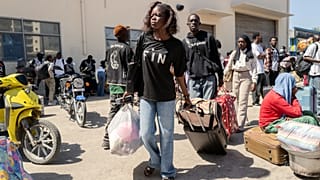

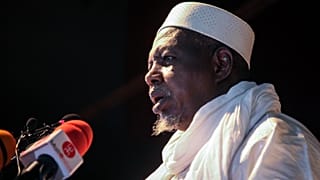
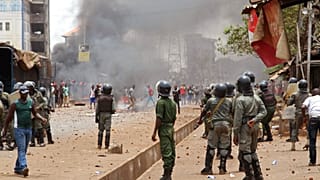
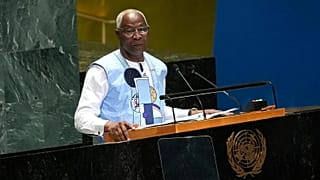
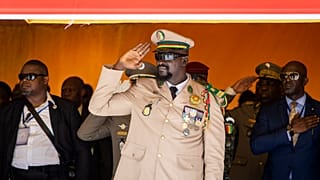
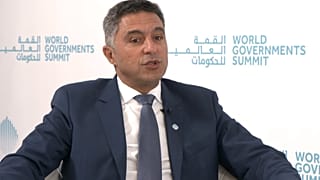
00:54
Guinea-Bissau opposition leader summoned to military court over coup allegations
00:22
ECOWAS lifts all sanctions against Guinea
01:32
Hollywood film star couple receive Guinean citizenship through DNA testing
01:25
Guinea: Claude Pivi, ex-security chief convicted over 2009 stadium massacre, dies
01:05
Guinea Supreme Court confirms Doumbouya's presidential election victory
01:04
Doumbouya supporters celebrate Guinea election win